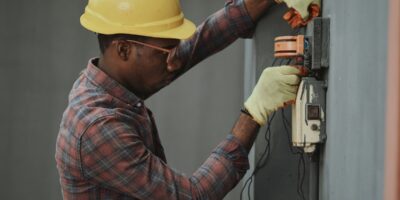Essential Electrical Safety Devices for Secure NW Homes
Electrical safety device selection has gotten complicated with all the acronyms, code requirements, and protection claims flying around. As someone who has installed safety devices in hundreds of Northwest homes, I learned everything there is to know about what actually protects your family. Today, I will share it all with you.
Northwest-Specific Challenges
Probably should have led with this section, honestly—the Pacific Northwest’s frequent rain and storms increase electrical hazards:

GFCIs: Your First Line of Defense
Ground Fault Circuit Interrupters detect imbalances in electrical current and shut off power instantly. Essential in areas with water exposure—kitchens, bathrooms, and outdoor outlets. Regularly test GFCIs to ensure they work.
AFCIs: Fire Prevention

That’s what makes AFCIs endearing to us fire-prevention-minded electricians—they catch problems standard breakers miss:
- AFCIs detect electrical arcs, which are precursors to fires
- Particularly important in older homes with outdated wiring
- Often installed in bedrooms and living areas
Surge Protection
- Power strip surge protectors: Protect individual devices from voltage spikes
- Whole house surge protectors: Installed at the main panel, defend against large surges that can damage wiring and major appliances
Smoke and CO Detectors
Non-negotiable for any home. Install smoke detectors in hallways, bedrooms, and common areas. CO detectors go outside sleeping areas and near fuel-burning appliances.
Tamper-Resistant Receptacles
TRRs have a built-in shutter mechanism that blocks foreign objects from being inserted. Mandatory in new homes, these provide peace of mind for families with young children.
Backup Generators
Essential in areas with frequent power outages. Standby generators automatically take over during power loss. Portable generators work too but require manual setup. For homes with medical equipment or home offices, backup power is nearly essential.
Regular Inspections
Regular electrical inspections by licensed professionals identify potential hazards before they become serious. Schedule inspections every few years, especially in older homes or after major renovations.



